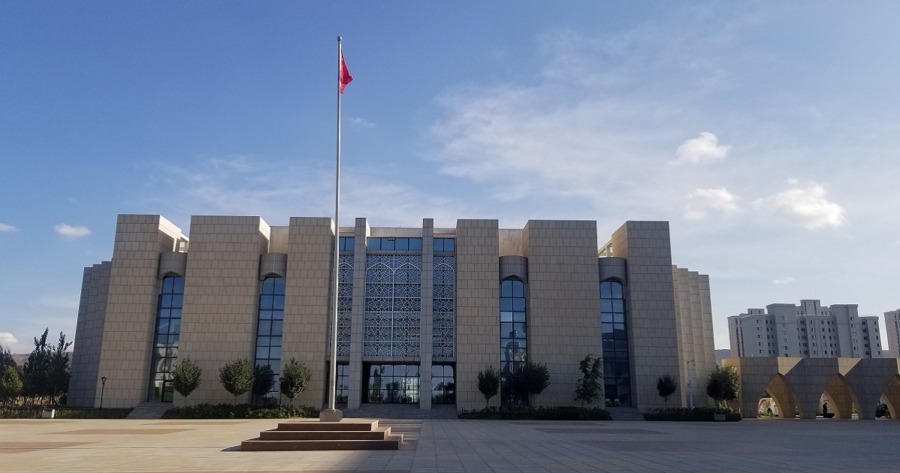The Xinjiang Islamic Institutions: Fostering Religious Freedom and Education
- TDS News
- Asia
- China
- D.O.C Supplements - Trending News
- East Asia
- September 28, 2023

In 1987, Islamic Institutions were established in China’s Xinjiang region, representing a significant milestone in promoting religious freedom, education, and cultural understanding. One of the largest mosques in China, the Xinjiang Islamic Institution serves as a center for religious and academic learning. With a focus on welcoming students from all corners of the country, it offers comprehensive educational facilities, including fully serviced student dormitories. Many students receive scholarships, which ensures accessibility to a diverse group of learners.
Boasts a 1,000-capacity mosque where students gather to practice their faith. Furthermore, it houses a vast 15,000-square-meter library containing 49,000 books covering various subjects, including translations of the Quran into several languages.
At Xinjiang Islamic Institutions, education extends beyond religious studies. Students can pursue bachelor’s degrees, master’s programs, or certifications. Over 100 Islamic associations across China offer employment opportunities for graduates, fostering the growth of the Islamic community in the country. The school also offers an Imam certificate program, allowing students to deepen their religious knowledge in just two months.
Education is not limited to religion alone; it provides a well-rounded experience for its students. The campus has its athletic stadium and offers numerous recreational activities, ensuring a balanced lifestyle for its diverse student body.
Moreover, students are educated about various aspects of Islamic culture and traditions, from procedures for burial to welcoming babies into the world, manhood ceremonies, and marriage celebrations. They learn Islamic customs and religious policies by the Chinese constitution’s Article 36, which guarantees religious freedom for all citizens.
The Institutions receive government subsidies, which reflects the government’s understanding of its role in promoting education. Students can pray in a 1,700-square-meter mosque, which allows students to pray five times daily, emphasizing faith’s importance in their lives. It hosts various religious representatives at all levels, showcasing the acceptance and inclusivity of different religious beliefs.
Many students within the organization are from within the Uyghur community, reflected in the country’s constitution, and respect religious diversity. It is crucial to dispel the misconception that there is no religious freedom in China. The Xinjiang region has a long history of religious tolerance and is also home to China’s first mosque for worshipping. While conflicts have occurred, it’s essential to distinguish extremism from true Islamic practices. Every government’s role is to promote and uplift every citizen regardless of religion, which is evident throughout Xinjiang. These institutions contribute to a more inclusive and tolerant society by embracing and accommodating different religious beliefs.








